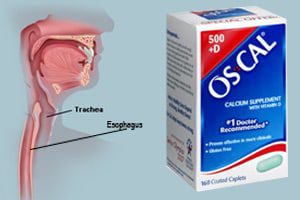
A study published last month in the American Journal of Gastroenterology suggests that oral bisphosphonate use was associated with a 2.33 percent increased risk of Barretts’ esophagus, a condition that increases the risk of developing esophageal cancer. Barrett’s esophagus, a condition in which the cells of the lower esophagus become damaged, usually from repeated exposure […]
 A study published last month in the American Journal of Gastroenterology suggests that oral bisphosphonate use was associated with a 2.33 percent increased risk of Barretts’ esophagus, a condition that increases the risk of developing esophageal cancer.
A study published last month in the American Journal of Gastroenterology suggests that oral bisphosphonate use was associated with a 2.33 percent increased risk of Barretts’ esophagus, a condition that increases the risk of developing esophageal cancer.
Barrett’s esophagus, a condition in which the cells of the lower esophagus become damaged, usually from repeated exposure to stomach acid, is most often diagnosed in people who have long-term gastroesophageal reflux disease (GERD), according to the Mayo Clinic. Barrett’s esophagus is a concern because it increases the risk of developing esophageal adenocarcinoma.
Bisphosphonates are the class of drugs most commonly prescribed to treat osteoporosis and other bone diseases.
The researchers conducted a case-control study among eligible patients scheduled for an elective esophago-gastro-duodenoscopy (EGD) and a sample of patients eligible for screening colonoscopy recruited from primary care practices over a four-year period, the British medical news web site Pulse Today reports. Patients with definitive Barrett’s esophagus were compared with controls; all underwent an EDG. There were 285 patients with Barretts’ esophagus, 1,122 endoscopy controls, and 496 primary care controls. The subjects’ oral bisphosphonate use was determined through pharmacy records. Alendronate (Fosamax) and risedronate (Actonel) were the only oral bisphosphonates prescribed. All patients in the study were over the age of 40.
The proportion of cases Barretts’ esophagus with filled prescriptions for oral bisphosphonates (4.6 percent) was greater than in endoscopy controls (1.6 percent) or primary care controls (2.9 percent). The association between bisphosphonates and Barretts’ oesophagus was observed in patients with GERD symptoms (OR 3.29), according to Pulse Today.
The researchers found a “significant association between oral bisphosphonate use and an increased risk of Barrett’s esophagus, especially among patients with GERD symptoms” but they advise that “additional studies are needed to further examine this association, as it could suggest an increased risk of esophageal cancer in oral bisphosphonate users,” according to Pulse Today.


